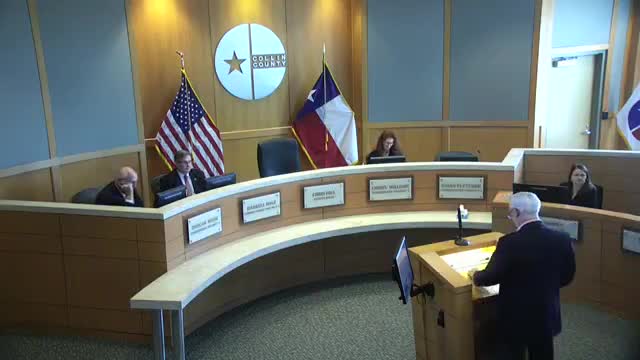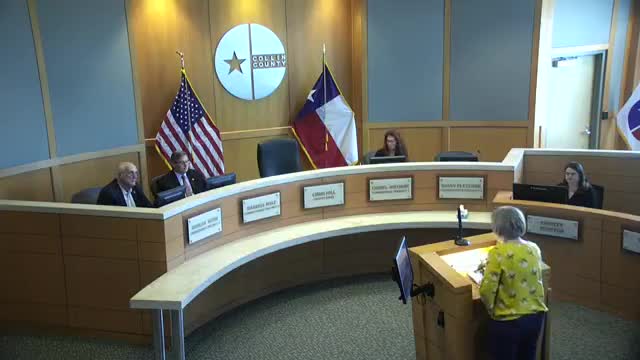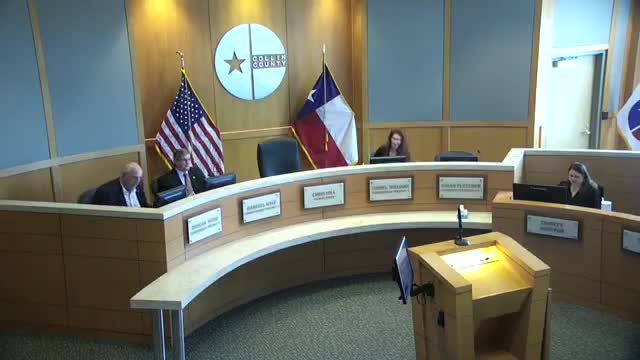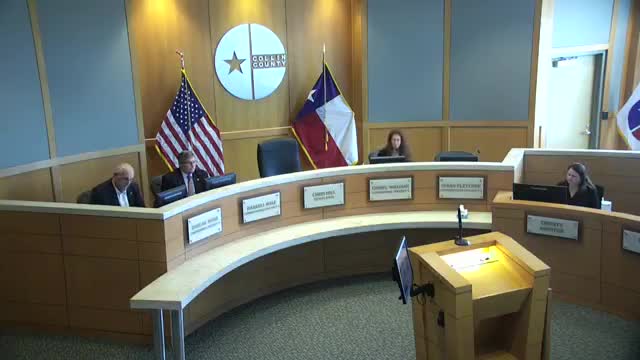Article not found
This article is no longer available. But don't worry—we've gathered other articles that discuss the same topic.

Commissioners approve replats and staff promotions; consent items pass with some pulls

Public commenters urge Collin County to delay ES&S maintenance contract pending federal, state standards

Commissioners hold electronic bail-bond items after staff memos flagged liability concerns

